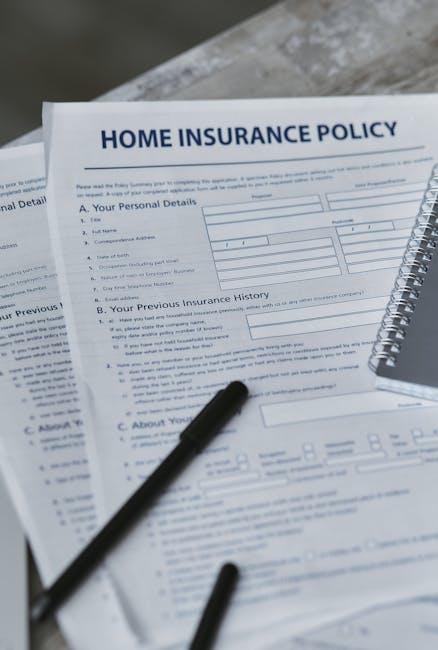In today’s fast-paced world, the expectation for swift and efficient service has become the norm, especially when it comes to essential services like insurance claims. However, many policyholders find themselves in a frustrating limbo, waiting longer than anticipated for their claims to be processed and resolved. Understanding the complexities behind these delays is crucial for navigating the claims process more effectively. This article delves into the multifaceted reasons why your insurance claim may be taking longer than expected, providing you with the insights needed to manage your expectations and take proactive steps to facilitate a smoother experience. By shedding light on the intricacies of the claims process, we aim to empower you with the knowledge necessary to advocate for yourself in this often opaque system.
Understanding Common Delays in Insurance Claim Processing
In the labyrinth of insurance claim processing, several factors can contribute to unexpected delays. Incomplete or inaccurate documentation is a common culprit. Insurers require detailed information to assess a claim, and any missing paperwork or errors can halt progress. It’s crucial to ensure that all necessary forms are filled out correctly and all supporting documents are included. Another factor is high claim volume, especially after natural disasters or significant events, which can overwhelm the system, causing slower processing times.
Additionally, complex claims often require more time for evaluation. If a claim involves multiple parties, substantial damages, or requires detailed investigations, expect a lengthier timeline. Communication breakdowns between the insurer and the claimant can also contribute to delays. To mitigate this, maintain open lines of communication and promptly respond to any requests for additional information. Lastly, internal issues within the insurance company, such as staffing shortages or technical problems, can also slow down the process. Being aware of these potential obstacles can help set realistic expectations and guide you in navigating the claims process more effectively.
Identifying Key Factors that Hinder Timely Claim Approval
Understanding the intricacies of insurance claims can be a daunting task, especially when unexpected delays occur. Various factors can contribute to the prolonged processing time of your claim. Incomplete or incorrect documentation is a common stumbling block. Ensuring that all required forms are filled out accurately and submitted with necessary supporting documents can significantly expedite the process. Additionally, complex claims involving extensive damages or multiple parties often require more thorough investigation, naturally leading to longer processing times.
Moreover, the internal procedures of the insurance company can also impact claim approval timelines. Each company has its own set of protocols and review stages, which can be affected by factors such as high claim volumes or limited staffing. Furthermore, if your claim involves third-party verification, such as police reports or medical records, delays in obtaining these documents can also stall the approval process. Understanding these key factors can help you better navigate the claims process and set realistic expectations for resolution timelines.

Proactive Steps to Expedite Your Insurance Claim
- Document Everything: Keep a detailed record of all communications with your insurance provider. This includes emails, phone calls, and any letters you send or receive. Maintaining a comprehensive paper trail ensures you have all necessary information readily available, which can help avoid unnecessary delays.
- Understand Your Policy: Familiarize yourself with the specific terms and conditions outlined in your policy. Knowing what is covered, the limits, and any exclusions can help you set realistic expectations and streamline the claim process.
- Submit Complete Information: Double-check that all required documents and information are included in your claim submission. Incomplete claims are a common reason for delays, so ensure every detail is accurate and complete from the start.
- Follow Up Regularly: Stay proactive by regularly following up with your insurance company. Set reminders to check in on the status of your claim, and don’t hesitate to ask for updates or clarification if needed.
- Seek Professional Help: If your claim is particularly complex or if you’re facing resistance from your insurer, consider consulting with a public adjuster or legal expert. Their experience can be invaluable in navigating the claim process efficiently.

Effective Communication Strategies with Your Insurance Provider
Engaging with your insurance provider effectively can significantly influence the pace at which your claim is processed. Here are some strategies to ensure clear and efficient communication:
- Be Prepared: Before initiating any conversation, have all necessary documents and information at hand. This includes policy numbers, claim details, and any relevant correspondence.
- Utilize Multiple Channels: If you’re not getting timely responses, try different communication methods. Consider phone calls, emails, or even live chats to ensure your message gets through.
- Document Everything: Keep a record of all interactions, including dates, times, and the names of representatives you spoke with. This can be invaluable if you need to escalate your issue.
By implementing these strategies, you not only enhance your communication but also demonstrate a proactive approach that can facilitate a smoother claim process. Your assertiveness and preparedness can help reduce unnecessary delays and misunderstandings.

